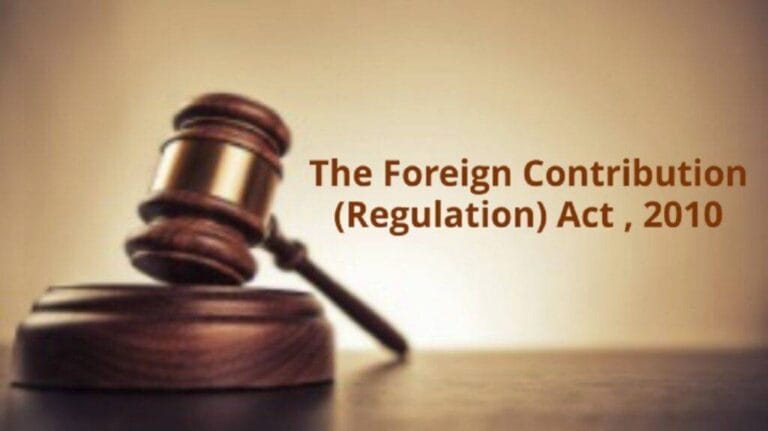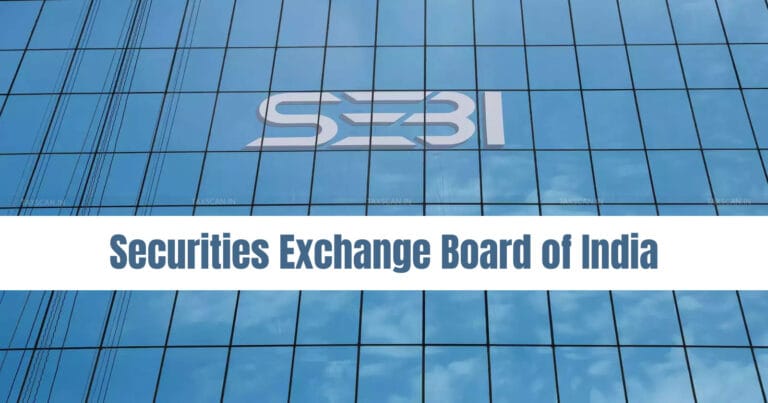Takeover due diligence is a critical process that organizations undertake when considering acquiring or merging with another company. This comprehensive assessment helps assess risks, opportunities, and synergies involved in the transaction. Here’s a detailed exploration of takeover due diligence:
Objectives of Takeover Due Diligence
1. Strategic Fit
- Evaluate how the target company aligns with the acquirer’s strategic objectives, market position, and growth aspirations.
- Assess whether the acquisition will complement the acquirer’s existing business operations and enhance overall strategic goals.
2. Financial Assessment
- Review the target company’s financial statements, including income statements, balance sheets, cash flow statements, and financial ratios.
- Analyze profitability, liquidity, solvency, and overall financial health to understand the financial viability of the target.
3. Market and Competitive Position
- Analyze the target company’s market position, competitive landscape, customer base, and industry trends.
- Evaluate the potential synergies and competitive advantages that the acquisition could bring to the acquirer.
4. Operational Due Diligence
- Assess the operational capabilities, efficiency, and scalability of the target company’s business operations.
- Review key operational metrics, supply chain management, IT infrastructure, and organizational structure.
5. Legal and Regulatory Compliance
- Conduct a thorough review of the target company’s legal and regulatory compliance, including contracts, licenses, permits, litigation history, and regulatory filings.
- Identify any legal risks, pending lawsuits, or regulatory issues that could impact the acquisition.
6. Human Resources and Cultural Alignment
- Evaluate the target company’s workforce, management team, talent retention strategies, and organizational culture.
- Assess the compatibility of organizational cultures and potential challenges in integrating teams post-acquisition.
7. Synergy Analysis
- Identify potential synergies, cost-saving opportunities, revenue enhancements, and operational efficiencies that could result from the acquisition.
- Quantify and assess the financial impact of synergies on the combined entity’s profitability and growth prospects.
Process of Takeover Due Diligence
- Planning and Preparation: Define objectives, scope, and timelines for due diligence. Assemble a due diligence team comprising of financial, legal, operational, and strategic experts.
- Information Gathering: Request and review extensive documentation and data from the target company, including financial records, operational reports, legal documents, and other relevant information.
- Analysis and Evaluation: Conduct a detailed analysis of the findings, identifying key risks, opportunities, and potential deal breakers.
- Integration Planning: Develop a comprehensive integration plan outlining the steps and strategies for combining the operations, systems, and cultures of the acquirer and the target company post-acquisition.
- Due Diligence Report: Prepare a due diligence report summarizing the findings, risks, opportunities, and recommendations for decision-makers.
- Negotiation and Deal Structuring: Use the due diligence findings to negotiate the terms and conditions of the acquisition, including purchase price, payment terms, and representations and warranties.
- Execution and Post-Acquisition Integration: Execute the acquisition agreement and begin the process of integrating the target company into the acquirer’s operations. Monitor and manage integration efforts to achieve the anticipated synergies and strategic objectives.
Importance of Takeover Due Diligence
- Risk Mitigation: Helps identify and mitigate potential risks associated with the acquisition, including financial, legal, operational, and cultural risks.
- Informed Decision Making: Provides decision-makers with critical information and insights to make informed decisions about proceeding with the acquisition.
- Value Enhancement: Enhances the value of the acquisition by identifying opportunities for synergy realization, cost savings, and revenue growth.
- Compliance and Legal Protection: Ensures compliance with regulatory requirements and legal obligations, protecting the acquirer from legal liabilities and potential disputes post-acquisition.
Challenges of Takeover Due Diligence
- Complexity and Scope: Due diligence for large-scale acquisitions can be complex and involve extensive documentation and data analysis.
- Time Sensitivity: The due diligence process often needs to be completed within a specific timeframe to align with acquisition timelines and objectives.
- Integration Risks: Challenges in integrating the operations, systems, and cultures of the acquirer and the target company post-acquisition can impact the success of the acquisition.
In conclusion, takeover due diligence is a critical process for organizations considering acquiring or merging with another company. It helps assess risks, opportunities, and synergies involved in the transaction, ensuring informed decision-making and successful integration of the acquired entity into the acquirer’s operations. You can also find the other useful content from our service pages, or can follow us on our facebook page for latest information.
At Ujjwal Gupta & Co
We, at Ujjwal Gupta & Co, are dedicated to delivering personalized, high-quality solutions tailored to meet your financial and business needs. With our team of professionals and a client-first approach, we ensure that every challenge is met with expert guidance and strategic insight.
We are dedicated to ensuring your business’s success by providing best service practice available in the industry and that too at a cost effective pricing. Our team of experts is excited to work with you and provide the support you need to thrive in the Indian business landscape.
Our only motive is to create Value for Our Clients and accordingly, have a Client Value System at our Office.
So, let us help you navigate the complexities of finance and compliance, empowering you to focus on what matters most — growing your business. Get in touch today, and take the first step towards financial peace of mind.
Takeover due diligence is a process where the acquiring company thoroughly examines the financial, operational, legal, and strategic aspects of the target company before completing a takeover. This helps identify risks, liabilities, and opportunities associated with the acquisition.
Takeover due diligence is essential to:
- Ensure the accuracy of the target company’s representations.
- Identify hidden liabilities or risks.
- Evaluate the target’s financial health and operational efficiency.
- Understand the target’s market position, growth potential, and competitive advantages.
- Assess whether the takeover aligns with the acquirer’s strategic goals.
Common areas include:
- Financial due diligence: Evaluating financial statements, debt, cash flow, and profitability.
- Legal due diligence: Examining compliance, litigation risks, and intellectual property rights.
- Operational due diligence: Reviewing supply chain, infrastructure, and processes.
- HR due diligence: Assessing employee contracts, benefits, and organizational culture.
- Tax due diligence: Identifying tax liabilities and compliance with tax laws.
Due diligence is usually conducted by:
- The acquiring company’s internal team.
- External advisors such as financial consultants, legal experts, tax advisors, and due diligence specialists.
- Investment banks or mergers and acquisitions (M&A) advisory firms.
Key documents include:
- Financial records (e.g., audited financial statements, budgets, and forecasts).
- Legal agreements (e.g., contracts, leases, and regulatory filings).
- Tax filings and compliance records.
- Organizational structure and employee-related documents.
- Intellectual property records (e.g., trademarks, patents).
- Customer and vendor agreements.
The timeline for takeover due diligence varies depending on the complexity of the target company and the scope of the investigation. For small acquisitions, it may take a few weeks, while for larger or multinational companies, the process can take several months.
Failure to conduct thorough due diligence can result in:
- Acquiring undisclosed liabilities or debts.
- Overpaying for the target company due to misrepresented financials.
- Legal disputes or regulatory issues after the takeover.
- Inheriting operational inefficiencies or cultural incompatibilities.
- Failure to achieve expected synergies or ROI.
The outcomes typically include:
- A detailed report highlighting the target’s strengths, weaknesses, risks, and opportunities.
- A valuation adjustment based on identified risks.
- Recommendations for mitigation strategies or renegotiation of terms.
- A decision to proceed with or withdraw from the takeover.
Takeover due diligence is specifically focused on evaluating a company as part of an acquisition deal. It goes beyond standard due diligence by examining synergies, cultural fit, and integration challenges to ensure the takeover creates value for the acquiring company.
Common challenges include:
- Limited access to sensitive information during the initial stages.
- Resistance or lack of cooperation from the target company.
- Complex regulatory environments, especially in cross-border takeovers.
- Identifying and quantifying intangible assets such as goodwill or brand value.
- Managing integration risks, such as cultural or operational mismatches.
Why Choose UGC?

Client Centric Approach
Client is the key driver of our service offerings. Our approach to service offerings is based on a client centric and customized approach. Our specialized teams are a mix of technical and industry experience in order to serve clientele for their specific needs.

Team Work
We have built high performing teams supported by strong work ethic. Our team is a mix of experts, professionals and support staff from technical and varied academic, social and ethnic backgrounds. We believe diversification plays a vital role in motivating the team.

Quick Turnaround
We always endeavour for a quick turnaround time to serve our clientele. We are supported by an experienced and client focussed support teams to offer timely services to our clientele. In case of any business exigencies and time sensitive service requirements, you can always count on us.

Open Communications
We believe that open communication is the core principle in order to demonstrate trust, build long lasting and valuable relationships with clientele. We are committed to ensuring transparency in communication, service offerings and delivery. Our only motive is to provide professional services to our clients.

Client Value System
We value for the Client time and thus, we offer services that are value for money. Quality professional services are provided to our clients, so that they are able to achieve their desired results. We are a quality trademark in the industry and thus, our clients count on us always.

Quality in Delivering Work
Our service offerings are driven by quality and reviews at every level. We strive to provide a qualitative and value-added delivery to our clientele. At all times, we endeavour to provide exceptional client service by meeting client expectations and driving client satisfaction.














